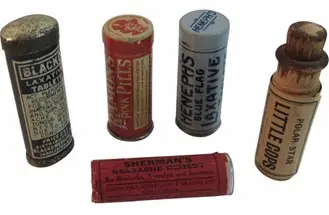“Everybody Wants A Pill”

This morning I had my annual appointment at the VA clinic in Crown Point; afterward, I went straight to class. Since I got there a bit early and my route took me past it, I paid a visit to the MT Tai Chi studio and its founder, Marc Troop. For having taught here at Essential Wave for two years and some change, I should have visited him much sooner. He is exactly the sort of person you’d expect – a combination of inner peace, outer calm, quiet confidence and a big heart.
I went there to not merely pay my respects but to thank him for sending students my way. He’s retiring from teaching and I wanted to make sure he knew his generosity & graciousness were acknowledged & gratefully appreciated. During our short visit, we spent time talking about tai chi generally and teaching specifically; and in this conversation, he said the line that forms the title of this blog post.
“Everybody wants a pill.”
At a superficial level, this makes sense. Imagine if someone developed a pill that could give us all of tai chi’s benefits. It’s Genie-In-A-Bottle level wishful thinking but let’s be honest – if someone figured out how to put “tai chi skill and benefits” in tablet form, I wouldn’t merely take it, I’d be a distributor!
Alas, such a pill doesn’t exist.
Or rather, the “pill” does exist, just not in the form we’re thinking of.
People younger than I grew up with Flintstones Chewable vitamins and even I’m young enough for “St. Joseph’s Children’s Aspirin;” but for most of human history, no one expected “internal” medicines to taste good or be gentle, or for “external” topical medications to be painless. Until the second half of the 19th century, those few medicines that were effective at all were disturbingly harsh; either they were drastic “purgatives” –laxatives or emetics – or dangerous stimulants. Prior to the 1842 invention of “Beecham’s Pills” (which were 40% aloe, 45% ginger & 15% powdered soap and were considered “mild”), if you needed your innards cleaned out proper-good, one “remedy” from the Indian subcontinent involved a spoonful of gunpowder in a cup of tea. At the “stimulant” end of 19th century medicine, sufferers had such things as strychnine, mercury and cocaine, and only the last one was at all effective.
Maybe we might not want the type of “pill” common in the mid-1800s when Yang Luchan developed our style of tai chi.
Even if we did have a “pill” of the kind advertised on cable television (“Ask your doctor if Taijiol® is right for you”), we’d have reason to be wary. Think about some of the horrifying side-effects of the remedies we see on TV. Now imagine the possible side-effects of a fictional martial-arts pill – I’m picturing how “Deadpool” got his superpowers, if that’s any indication.
The only “pill” in tai chi is the work of study and practice, and the time it takes. We didn’t get all our bad habits of moving, working and resting overnight, and the “pill” we have won’t fix them overnight either. The good news is that it’s proven, safe and effective, and the side-effects (better balance, coordination, concentration, peace-of-mind etc.) are the sort we’d actually WANT out of a “medicine.”
